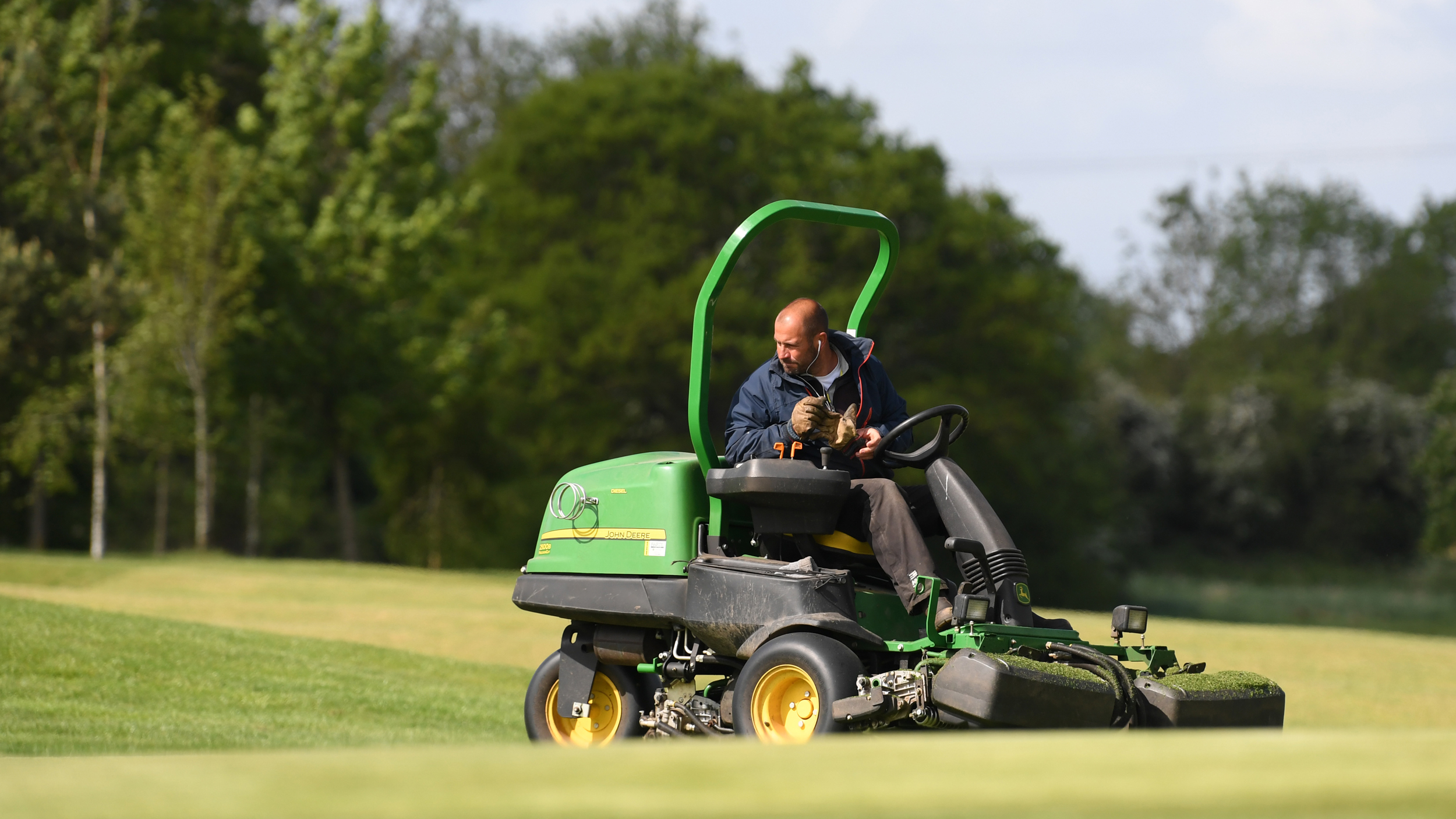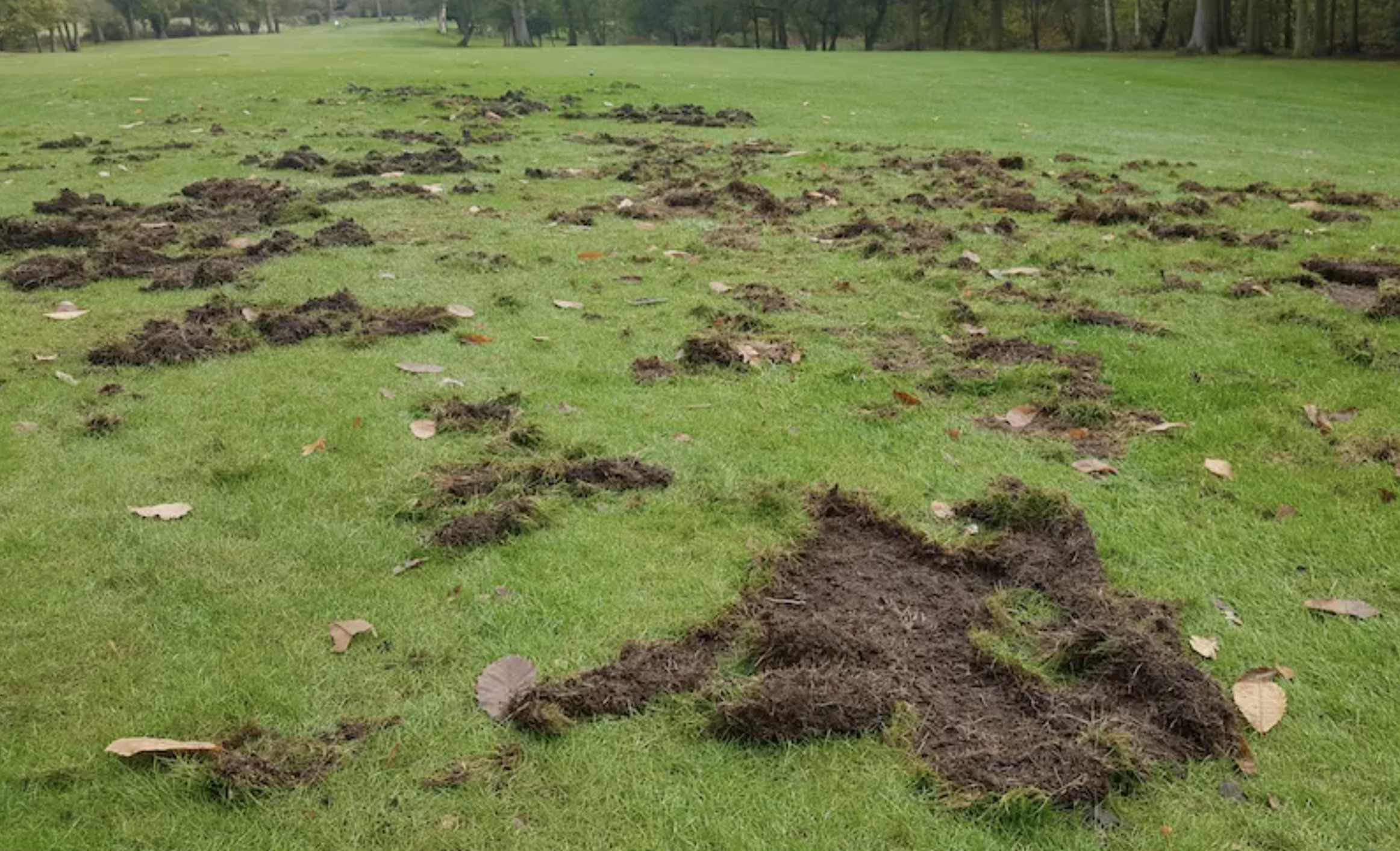5 Biggest Challenges Facing Greenkeepers
From labour shortages to insects and rising costs, we take a look at some of the challenges facing greenkeepers...


Greenkeeping is a high pressured industry with clubs and golfers wanting their courses to be perfectly manicured as often as possible, but it's not as easy as many might think.
Aside from the obvious challenges from the weather to golfers not replacing divots and repairing pitch marks to the rising cases of vandalism, we look at five of the biggest challenges facing greenkeepers today...
1. Labour shortages
The greenkeeping industry is going through somewhat of a crisis right now in terms of labour shortages, with clubs up and down the country struggling to fill vacancies. Reasons given for the shortages include anti-social hours, low entry level pay and a lack of appreciation for the work.
"There seems to be a huge shortage of greenkeepers in the industry and there's a huge shortage of people coming into the industry," John Mcloughlin, Course Manager at Wallasey Golf Club, told Golf Monthly. "So there's a huge labour shortage, which is becoming extremely difficult within the industry. It’s not necessarily low paid but it could be classed as sort of anti-social hours. They’ve got to get up really early, they’ve got to work weekends and starting at the bottom the wages are low. And then I suppose there's a lot more jobs for the millennials rather than working outside. So there’s jut not people coming into the industry, which is probably one of the biggest factors presently facing course managers and golf clubs. So that is starting to drive up salaries, which is a good thing. However, it's in the long-term it's not a good thing, if you've got no staff."
2. Insects, grubs and animals

Animals digging for grubs can cause huge damage on golf course
Greenkeepers have two main enemies when it comes to insects and grubs - leatherjackets and chafer grubs.
"Leatherjackets (crane fly larvae) are probably now one of the pests that are causing greenkeepers the most trouble," John Mcloughin said. "So there’s not just leatherjackets. There's chafer grubs, which is a beetle before it becomes a beetle, it’s a grub and the chemicals to spray and to kill the chafer grubs has also been banned. So, what happens is you have the likes of badgers digging now to dig up the chafer grubs on greens and surrounds of greens and tees and closely mown areas. A badger could destroy a golf course overnight almost because the chemicals are not there to treat the problem and again, crows and bird damage is huge as well."
3. Lack of chemicals
Some of the chemicals from fungicides and insecticides that greenkeepers previously used to treat their courses have now been banned, so the jobs have become much tougher. This has led to course managers finding more natural ways to keep the turf as healthy as possible, with golf course woodland management one of them. "An insecticide that was used to control leatherjackets has now been banned, which was extremely cheap and you could treat your whole golf course for probably less than £1,000," John Mcloughin told Golf Monthly. "Whereas now just to treat your greens there is an emergency chemical but it doesn't work anywhere near as good as the old chemical, it’s a bit hit and miss and it probably costs £600-£1,000 to treat your greens. And there’s no reassurance to say that it will actually work."
Get the Golf Monthly Newsletter
Subscribe to the Golf Monthly newsletter to stay up to date with all the latest tour news, equipment news, reviews, head-to-heads and buyer’s guides from our team of experienced experts.
4. Rising costs

Sand costs have risen significantly, as have many other greenkeeping essentials
Costs are rising for almost all products in all industries, and greenkeepers are feeling the pinch too. Sand costs have risen by 25% in the last year and other costs continue to rise also. "Sand costs because of transport have gone through the roof and obviously the process of mining the sand with the cost of transport and fuel to run the machines and the plant to excavate the sand to transport it," John Mcloughin says. "So, sand has gone up considerably and obviously plants as well have gone up considerably as have fertiliser costs as well."
5. The golf boom
Golf has gone through a once-in-a-generation boom since the pandemic, with the R&A's research revealing that golf participation went up by 2.3 million on-course adult golfers in Great Britain and Ireland during 2020. This has meant golf course traffic, footprints, divots, pitch marks, trolley and cart tracks have gone up significantly too, only adding to the challenges facing greenkeepers.

Elliott Heath is our News Editor and has been with Golf Monthly since early 2016 after graduating with a degree in Sports Journalism. He manages the Golf Monthly news team as well as our large Facebook, Twitter and Instagram pages. He covered the 2022 Masters from Augusta National as well as five Open Championships on-site including the 150th at St Andrews. His first Open was in 2017 at Royal Birkdale, when he walked inside the ropes with Jordan Spieth during the Texan's memorable Claret Jug triumph. He has played 35 of our Top 100 golf courses, with his favourites being both Sunningdales, Woodhall Spa, Western Gailes, Old Head and Turnberry. He has been obsessed with the sport since the age of 8 and currently plays off of a six handicap. His golfing highlights are making albatross on the 9th hole on the Hotchkin Course at Woodhall Spa, shooting an under-par round, playing in the Aramco Team Series on the Ladies European Tour and making his one and only hole-in-one at the age of 15 - a long time ago now!
Elliott is currently playing:
Driver: Titleist TSR4
3 wood: Titleist TSi2
Hybrids: Titleist 816 H1
Irons: Mizuno MP5 5-PW
Wedges: Cleveland RTX ZipCore 50, 54, 58
Putter: Odyssey White Hot OG #5
Ball: Srixon Z Star XV
-
 Rory 2.0 Was Born At The 2025 Masters... McIlroy Is Now Free Of His 11-Year Major Burden
Rory 2.0 Was Born At The 2025 Masters... McIlroy Is Now Free Of His 11-Year Major BurdenThe Northern Irishman dug deeper than he ever had to get over the line and finally seal the missing green jacket to his career grand slam puzzle
By Elliott Heath Published
-
 Rory McIlroy Wins The Masters In Playoff To Complete Career Grand Slam
Rory McIlroy Wins The Masters In Playoff To Complete Career Grand SlamThe Northern Irishman battled past Ryder Cup teammate, Justin Rose to finally seal his first Masters title and become the sixth man to win all four men's Majors
By Jonny Leighfield Published